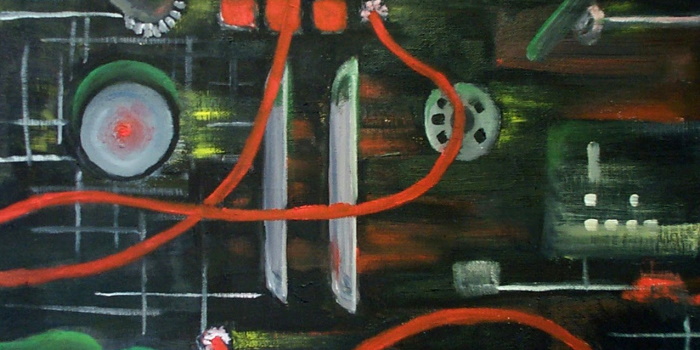
Can an Artificial Intelligence (AI) be a copyright holder? Can an AI get a patent?
I think the answer is pretty clearcut. No.
Let me explain.
When a writer writes a novel, he or she owns the copyright.
When a writer writes a novel in Microsoft Word, the writer still owns the copyright. Microsoft does not own the copyright. Even if the writer uses a template and accepts suggestions from Word’s spelling and grammar features, the writer still owns the full copyright.
What’s the difference between a writer inspired by another novel to write his or her own novel, and an AI trained on a novel to synthesize a new novel in the same style? Each writer creates their own set of writing rules they go by, otherwise known as the writer’s “style.” The goal of an AI is simply to learn those rules (the style) and create something new within the bounds of those rules.
There’s no plagiarism in copying someone else’s style. Every writer does it. They read books that they like, and they imitate the best parts. An AI is an artificial brain that’s designed to work like a human brain. It observes data and tries to imitate the best parts.
But, you might object, “that’s not fair because computers are so much faster than humans!”
I was schooled as a computer scientist, trained as a graphic artist, and worked in the field of inventions and patents, so believe me when I say this: our brains are the most powerful computers in the universe. Yes, we can build computers that can perform singular tasks with unfathomable speed, but we can’t build a computer that performs anywhere near the functions of a human brain.
Think of all the brain power it takes to do a simple task like catching a ball. Your brain has to gather visual data of the scene in front of you, locate the ball, track it, predict where it will be when it arrives, know how to control every muscle in your body (there are well over six hundred), then move your body in such a way as to catch the ball, while keeping all your bodily functions going (heart beating, lungs breathing, peripheral vision alert for unforeseen happenings, etc). All of this, just to catch a ball. Yes, we can conceivably build an AI robot that can catch a ball, but we all know that humans do so much more than that.
My theory: Just like how the laws of nature won’t let us go faster than the speed of light, we can never build an artificial brain more powerful than a human brain.
I’m a firm believer that if we could harness all the power of a single human brain and give it just one task to do (like calculating pi), it will do it faster than any computer can ever do it. We see something similar happening in autistic savants and extremely focused people.
All of this is to say that computers are not faster or better than humans. Humans have the upper hand (whereas computers don’t have any hands!). A human reading Moby Dick can go on to write a similar novel, own the copyright to the new novel, and doesn’t even have to credit Herman Melville for the inspiration. Similarly, an AI can take Moby Dick as training data input, generate a similar novel based on the input, own the copyright to the generated novel (or maybe not?… we’ll get to this next), and doesn’t even have to credit Herman Melville for the “inspiration.”
So what I’ve attempted to establish so far is that new works generated by an AI create new copyrights. It’s not plagiarism and you don’t have to credit the works from which it was based. From a legal perspective, you can’t copyright or patent ideas. You can only copyright or patent implemented ideas.
But can an AI own a copyright or patent? The quick answer again is: no.
As much as we’d like to believe that our AI’s have souls and are humans, they are not. An AI is still just a tool created by humans, just like cars and computers. Even if you set up your computer to automatically take a picture through the webcam, then automatically run a Photoshop filter on the picture, you still own the copyright to the picture because you were the one who set up the computer to create it. Your computer, the company that made your camera, and Adobe (maker of Photoshop)… none of them own any rights to the picture you set up your computer to create. Your computer, your camera, and Photoshop were just tools that you used to create art that you conceived, so you own the copyright.
An AI is a tool created by humans, so the copyright to generated works belongs to the person who set up the AI to create the work.
Leave a Reply